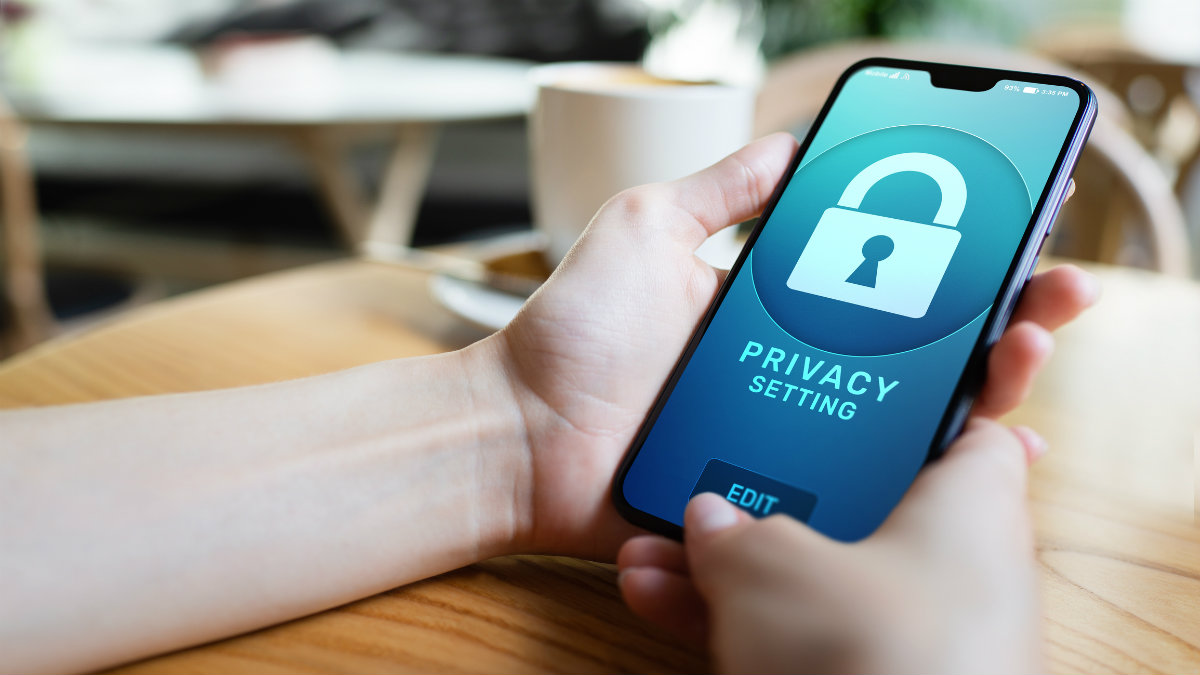Haven’t used your PayPal account in forever? Delete it and erase all the data associated with your name. Log in and click the Settings icon. Select Data & Privacy > Delete your data and close account. Follow the on-screen prompts, and wait for the confirmation email.
Tech steps to take before you die

It’s a grim topic, but we have to think about what happens to all our online accounts, data, notes, photos, videos, websites, playlists, blogs and subscriptions once we’re gone. Do your loved ones a favor and get this sorted out beforehand.
Your Apple account
Apple’s Legacy Contact is a safe, secure way to give trusted people 13 or older access to the data stored in your Apple account after you die. Here’s how to set it up on your iPhone:
- Open Settings and tap your name.
- Go to Sign‑In & Security > Legacy Contact > Add Legacy Contact.
- Select the person from your Contacts, then tap Continue.
- You’ll be asked how you want to share your access key. Select Print Access Key or Send Access Key.
- If you choose to send your key digitally, Apple will create a message letting your contact know you’ve added them as your legacy contact. Tap Send.
Your Google account (including Gmail)
Google offers a similar setup as Apple’s Legacy Contact called Inactive Account Manager. With it, you choose when your account is considered inactive and what happens to your data.
- Hit this link, choose Start, then select a timeframe for Google to consider your account inactive — from three months to 18 months. You’ll get multiple alerts via text and email before anything happens, so make sure your phone number and recovery email are both up to date. When you’re ready, click Next.
- Add up to 10 people Google should notify if your account is inactive, then choose anything you want them to have access to, like your contacts, calendar or entire Google account. They’ll have three months of access time. After you’ve selected your legacy recipients, hit Next.
- If you don’t want to share your data with anyone else and would prefer Google delete your account instead, toggle on that option.
- Hit Review Plan to finish up, then click Confirm Plan.
Do the same for Facebook
On Facebook, you can assign a legacy contact to write posts, update your profile photo and get a copy of everything you did on Facebook after you pass. It’s easiest to do this from a computer.
- Sign into your Facebook account, then tap your profile in the upper-right corner.
- Select Settings & Privacy > Settings > See more in Accounts Center > Personal details > Account ownership and control.
- Choose Memorialization, select your Facebook account and pick a legacy contact.
If you’d rather have your Facebook account deleted, go to the Memorialization settings page. Right above the Close button at the bottom, select Request that your account be deleted after you pass away.
What about all your passwords?
8 ways your phone is tracking you - That you can stop now

You understand that your phone knows where you’re located. This is how GPS works, how Find My sees your location and why you get local ads on Facebook and Google. Like other data on your phone, that location data is a hot commodity for internet marketers.
Google’s deleting inactive Gmail accounts
Don’t let your digital life vanish! Many tech companies are deleting profiles, and you could lose everything. Here’s why.
Amazon switcheroo: Starting Feb. 26, you can’t download Kindle books onto anything other than an Amazon device. So, right now, sign in to Amazon, click Accounts & Lists > Content Library > Books. On the one you want, hit More actions > Download & transfer via USB.
1,000-year-old seed
Grew into a 10-foot tree with biblical significance. It took 14 years, but scientists grew a once-extinct plant. It appears to be the one that produced a medical extract called “tsori” that was referred to in the book of Genesis and Old Testament accounts of Jeremiah and Ezekiel.
Scam emails we got this week – Don’t fall for this junk!

Eight billion. That’s how many spam emails go out in the U.S. every single day. Komando staff (me included!) have received some real winners recently. Here’s a look at actual spam emails circulating right now. I want to keep you safe from junk like this, so read carefully!
💸 Who’s in your wallet? The Consumer Financial Protection Bureau says Capital One conned customers out of $2 billion in interest payments. They promised super-high rates for 360 Performance Savings accounts, then froze them at 0.30%. If this happened to you, file a complaint.
🚨 Hackers’ latest Facebook tricks: They’re stealing accounts to post fake product listings on Marketplace or in status updates or stories. Or they’re using those stolen profiles to post that someone has died and they need money for the funeral. PSA: Have strong passwords and lock your profile so only your friends can see it.
Worth a try if your Facebook account gets hacked: Meta doesn’t care if your FB account is hacked. One woman had to use Facebook’s automated help page, which sent her account’s reset code straight to the hacker’s email. It wasn’t until she paid $14.99 a month for Meta Verified that she finally spoke to a live agent and got her account back.
🚨 Gmail scam spreading: This is frightening. Watch out for fake Gmail account recovery request notifications that look like the real deal. Hackers try to convince you to sign in through a phony login page, where they can then capture your password. Ignore or decline the request and they’ll follow up with an AI-generated Google support call in which the caller claims someone has accessed your account and stolen your data. Ignore that, too. Pass this on so everyone knows this is happening.
Stop the binge: Streaming apps usually queue up the next episode of a show automatically, but most have a setting to stop this. On Netflix, click your account picture (top right), then Manage Profiles and your profile to find the option.
Poor Swiftie: A Taylor Swift fan had her $3,500 concert tickets swiped right from her Ticketmaster account. Someone hacked in and transferred them out. It’s happening more often, and support says it could take days to resolve — with no guarantees. Ticketmaster’s brilliant advice? Create stronger passwords.
🚨 “Hello pervert”: Scammers are sending emails claiming they’ve recorded you through your webcam and will release the footage unless you pay up. They’re using details like your home address or an old password to make it more believable. Don’t reply, and if any accounts still use that old password, change it immediately.
I can’t leave you out, Android pals: Scan with Google Drive. Hit the plus sign in the bottom right > Scan. Follow the on-screen instructions, then save it to your account. So easy.
Teamwork makes the dream work: Copilot Pages is Microsoft’s answer to Google Docs. Ask Copilot for research, drop the responses into a new page, then edit with your colleagues in real time. Try it now if you use Microsoft 365 Copilot ($30 per month); it’s coming free for Copilot customers with Microsoft Entra accounts soon.
😭 Look who died: Don’t click on a strange link making the rounds on Facebook that says, “Look who died.” Surprise, it’s a scam. Lowlifes want to get all the deets on your account to wreak havoc.
📧 Google is shutting down more Gmail accounts: They started with accounts created but never logged into. Now, accounts with no activity in the last two years are on the chopping block. Sign into your Gmail account, open an email, and you’ll be fine.
Let’s Turk about it: I mentioned Amazon Mechanical Turk on my show and I keep getting questions. Get paid to complete tasks that are easier for people than bots, like analyzing images and transcribing audio. Sign up here for a Worker account.
Charges you forgot about: Amazon Subscribe & Save is handy when it’s stuff you want and annoying when it’s stuff you just forgot to cancel. From Your Account, select Memberships & Subscriptions or Subscribe & Save Items to see a list of your subscriptions, costs and renewal dates.
